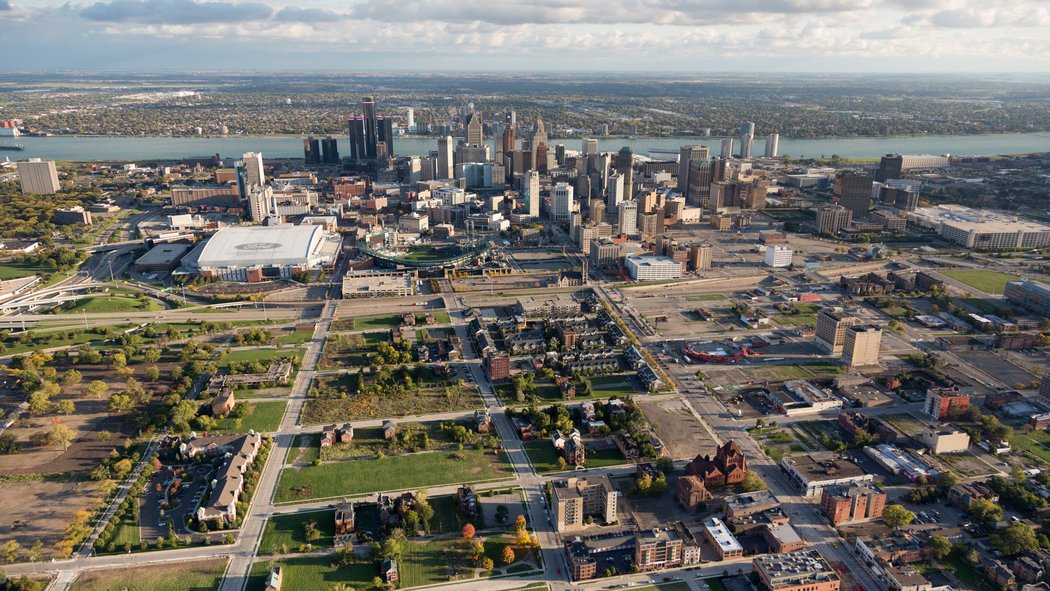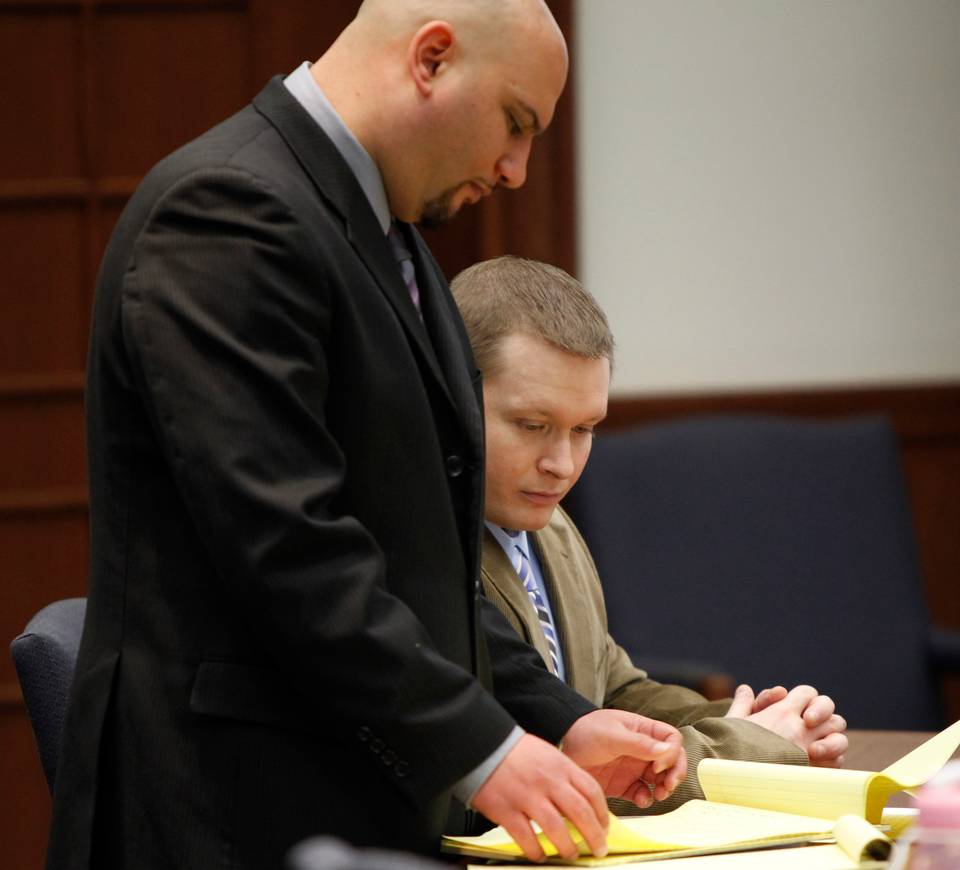
The Detroit neighborhood where Lexington defense attorney Rawl Kazee grew up no longer exists. A treacherous environment of abandoned buildings and crack houses, it was more likely to send its children to prison – if not to a premature death – than it was to spring them into a legal career. Kazee still remembers the sporadic sound of gunfire at night and the bullet holes that dotted his grandmother’s front door.
So Kazee already had beaten the odds by the time he reached the University of Kentucky to start college in the late Nineties. He brought with him “an edge, a hard edge,” he tells us today: a jaded view of human nature and a fighter’s determination. Indeed, he literally was a fighter: Kazee reports that he was named an All-American welterweight boxer in his sophomore year.
However well Kazee’s survivor instinct served him on the streets of Detroit or in the boxing ring, though, it made the adjustment to university life a slow process. His guarded disposition, his swagger, not to mention his “do-rag” and sweat shirt … none of it went over well in the halls of academe.
“I brought this hard edge from Detroit that was not appropriate for regular people who were not from there. It caused conflict when there didn’t need to be any,” Kazee confesses.
“I thought when you wanted something, you had to take it. At the university, though, if you tried to take something, people would say, ‘Because you did that I’m not going to let you have it.’ Whereas if you asked how they were doing, asked about the photo on their desk, and then asked nicely for something, they’d be all sweet: ‘Oh, sure you want that? Take it. Here, I’ll give you two,’” he says.
Early in his studies, Kazee decided to tackle a research methods course offered by the Political Science department, one taught by a professor who’d just arrived from Harvard University’s graduate program in Government: Stephen Voss.
Voss showed up on the first day of class wearing a pin-striped gray suit, a starched white shirt, and a maroon tie – and as Kazee listened to his professor from the very back of class, the physical space between them was nothing compared to the cultural distance he felt. “I went back home afterward,” Kazee said, “and I told my roommate: ‘I’m taking a course with John F. Kennedy, Jr.’”
Kazee figured that Voss would expect little from him, and he expected little from his teacher. But his interactions with Prof. Voss set the tone for many of the experiences he later would have with faculty members in the Political Science department: They worked hard to give Kazee the support he needed.
It wasn’t always a comfortable experience. “You had faculty and staff who felt concern, who cared whether you were going to be successful.” When they would smile or be kind, it only put Kazee on alert. “I’d wonder, ‘Why do you care so much about me? What are you trying to get out of this?’ I was suspicious at first.”
Whatever cultural gap might have existed between them, Kazee and Prof. Voss bridged it, because Kazee returned to Voss’ classroom next academic year to take his first Legal Studies course: Civil Liberties. It was in Voss’ course that Kazee also received his first taste of being a lawyer, joining one of the attorney teams in a semester-ending Supreme Court simulation.
In the law, Kazee found his calling. “I feel as though this is what I was meant to do, what I was born to do. I’m not getting rich. I’m not going to get rich,” Kazee says. “I’m trying to do good, to stay in line with what God wants me to do.”
While an undergraduate, Kazee also began taking courses with Political Science Prof. Horace Bartilow, the department’s expert on international political economy, and the two eventually developed a close mentoring relationship. Bartilow helped Kazee through perhaps the hardest lesson of his undergraduate years: how to thrive around people with whom he felt as though he had little in common.
____________________________________________________________________________________
“I brought this hard edge from Detroit … caused conflict when there didn’t need to be any.”
____________________________________________________________________________________
“My undergraduate days were some of the best times of my life. I learned a lot about myself,” Kazee says. “I had this attitude: You can’t understand who I am, you couldn’t even understand where I come from. But eventually I realized that everybody has their problems, everybody has their stories. Even rich people get cancer ... Anyone might have been molested as a child. Students from another country would look at my life and think it was pretty good. ‘What, you could drink the water? You could find water?’ We’ve all faced problems of a sort.”
Kazee did bring important advantages with him to the University of Kentucky: a drive to succeed and, he says, a deep faith in God that he credits to his family. Both his determination and his faith faced their toughest challenge, academically speaking, after Kazee’s first year of UK Law School. He’d waited anxiously that Summer to see his grades, but when the envelope finally arrived, it contained nothing but a short note telling him he was not being asked to return.
The sticking point was a “D” grade in Constitutional Law. His professor would not reconsider the grade, but Kazee was granted an audience with law-school faculty to argue for his reinstatement. Problem was, Kazee had moved back in Detroit to save living expenses, and he had little money for the drive back down to Lexington.
“I put my last dollar into the tank. I had three-quarters of a tank,” Kazee says. “That’s not enough gas to get here from Detroit, but I decided to drive as far as I could and then try hitchhiking the rest of the way. But I never had to stop. Somehow it carried me all the way to Lexington.”
Kazee won his appeal, but he blamed himself for the situation, and after making it to the hearing with a car running on “God’s fumes” he felt a new sense of responsibility. The professor might have been hard on him, but “it was my own fault that I let myself get into that position. Here I was, coming from this background, and I’m blessed with this opportunity … I messed this up.”
Kazee returned to UK Law having “hit a fork in the road. I had to try to prove myself afterward. I took all the hardest classes, even if I didn’t really need them. I had something to prove. I pretty much didn’t do anything for the next two years except work and work out.”
Kazee now runs a solo law office as a prominent defense attorney in Lexington. Although married with two young children, a son and a daughter, Kazee puts in long hours that he interrupts most evenings so that he can race home from his Church Street office for family dinner. “If I didn’t take that break,” he says, “I’d never see my kids, you know?”
Although Kazee spends a lot of his time focused on cases for the state that offer little financial compensation, periodically he shows up in headline criminal trials. Recently, he represented former Lexington firefighter Jarad McCargo, who was behind the wheel in a 2014 crash outside the Beer Trappe that seriously injured an Army National Guard captain. He represented Desmond Jones, one of three defendants for the 2013 murder of a 23-year-old BCTC student, and he represented Toby Ray Lasure, who fled police for more than two hours after he’d shot a romantic rival to death at Lexington Green mall.

Kazee knows that defense attorneys are unpopular, viewed as helping criminals escape justice, but he feels good about his work. “Somebody’s got to fight the police. Keep them in check,” he says. “I’m not saying they are all evil. But they shouldn’t have unfettered discretion, either. When they accuse someone, you need someone else able to say ‘Prove it.’ When they call someone guilty, they still need to show that they have proof.”
Even in cases when someone has done something wrong, and the evidence of criminal activity is indisputable, the client still needs high-quality representation so as to leave the system having been convicted of the right charges and with a punishment that fits the crime. “Defense attorneys need to have a different definition of ‘win’ from most people. Even if your client is dead-to-rights guilty, you try to help make sure that their rights are protected by the system.”
One case haunts him. A client, after being freed, stabbed one of the witnesses who testified against him. He’s also sometimes troubled at how, in fighting to protect his clients, he ultimately helps perpetuate a justice system that he believes treats people differently by race. He negotiates deals or gets jury pools for wealthy white clients that he describes as unlikely, if not impossible, for minority clients.
“It’s good for me as a lawyer, helping my clients, but sometimes I feel as though I’m taking advantage of the same thing I scream about,” he admits.
Outside of the courtroom, Kazee has tried to help address what he calls simply “the problem” – the poor relations between police and Kentuckians living in high-crime neighborhoods – for example by calling for dashboard cameras (if not body cameras) to record police actions. He looks forward to devising new ways for defense attorneys to work together so that the accused can receive fair treatment.
“If I try to help people, maybe it will inspire others to do the right thing, too,” he says.
